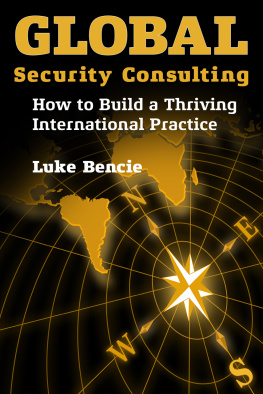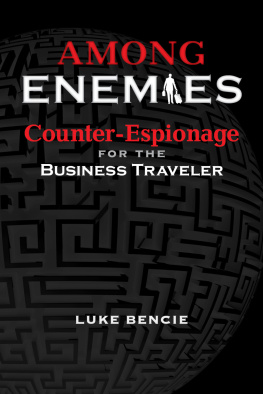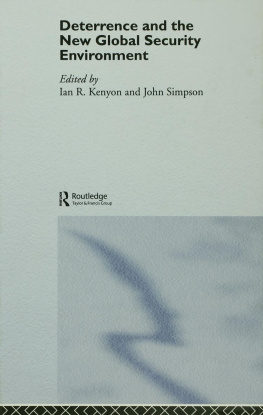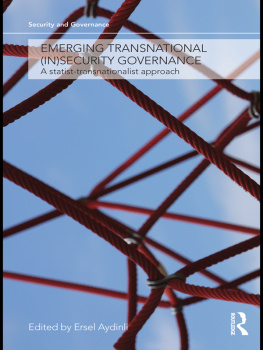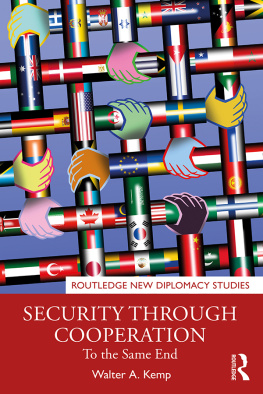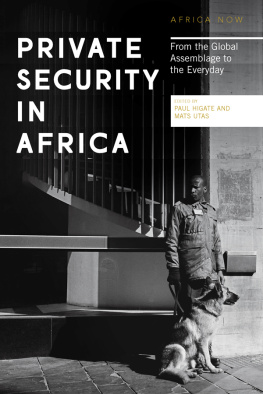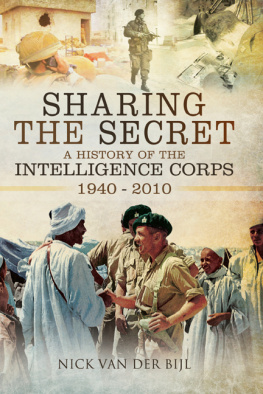Foreword
Providing security to the commercial sector has skyrocketed as a business in the 21st century because of the global spread of terrorism and organized crime, the increasing use of espionage against American companies, and the newly evolving threats of cyber theft and cyber warfare. The security components of multinational corporations no longer deal just with gate guards, locks and ID badges. Today they fulfill a vast array of tasks, from risk mitigation, crisis management and intelligence analysis to due diligence and protecting information systems. No question, top-flight security now is essential to commercial success.
The situation has opened a new world of consulting opportunities, both here in the United States and overseas, for experienced and capable individuals in law enforcement, intelligence and the military. But the commercial environment differs drastically from the military or public service, in which so many seasoned professionals have spent all or most of their working lives. As independent security professionals, they must handle even the most mundane tasks themselves, lacking the usual support from government agencies or specialized personnel.
Likewise, the security professionals income depends entirely on his or her effectiveness in serving clients no more doing the job routinely and receiving a government paycheck every two weeks. Earning income results from meticulous planning, successful marketing and delivering on promises negotiated in contracts. The rewards of global security consulting can be great, but the challenges can seem daunting, particularly to those lacking a background in the private sector.
Fortunately, Luke Bencies Global Security Consulting: How to Build a Thriving International Practice provides a comprehensive guide for anyone considering making the leap from the government or corporate sectors to independent business. The book is easy to read and written for the layman, and it encompasses the gamut of requirements for building a successful security consulting business everything from conducting sensitive negotiations overseas to procuring business cards and office supplies.
When I retired from the CIA, I decided to form my own consulting practice specializing in security and intelligence-related issues. During my career, I had spent years working and living overseas. I also was stationed in the United States, where I logged more years dealing with other government agencies and Congress. But like many of my colleagues, I felt lost wandering through the strange and dark forest of the commercial world. I pored over countless how-to books and articles about establishing a small business. Some were more helpful than others, but none dealt with the unique field of security. As Luke stresses in his book, security professionals operate in a rarefied atmosphere, where the risks are high and lives could be on the line. As one who learned, on his own, both the advantages and pitfalls of security consulting, I wish I had Lukes guide at the time. It certainly would have made it easier to establish my business.
Global Security Consulting is an especially useful resource, not only because it is comprehensive, but also because Luke has based it on his own experiences starting and building an extremely successful consultancy from the ground up. When he left the intelligence community and made the leap into private business, he quickly expanded beyond working out of his home to an international practice with offices on three continents.
I collaborated with Luke on a project and was impressed with his and his companys meticulous attention to the smallest detail of every aspect of the endeavor. Luke brings that same attention to detail to each topic in this book, whether the complicated world of financial management or preparing for a simple meeting with a prospective client. The topics represent not a mere checklist of requirements for the fledgling global security consultant. They include practical dos and donts often drawn from Lukes own business encounters, both good and bad, and they provide insights into all of the areas a budding security consultant will encounter.
Two aspects of the book impress me in particular. One involves conducting security consulting overseas; the other covers dealing with foreigners in a business setting. As I mentioned, there are now great opportunities overseas to work as a security specialist but those opportunities are fraught with many potential pitfalls from legal and cultural standpoints. Luke explains those pitfalls convincingly and provides specific preparations and solutions to avoid them, often illustrating them with personal anecdotes from his own commercial dealings abroad.
Lukes advice not only educates aspiring security consultants but also helps them gain the confidence needed to build a global business. Although the commercial sector might seem a bewildering maze for newcomers accustomed to life in the government, Luke illustrates by example how security professionals have already acquired many of the skills required to succeed in the business environment. The secret is learning how to apply those skills and experience in the most effective ways, and Luke describes the best ways to do so.
Perhaps Lukes most valuable advice is how to sharpen your BS detector to spot potential problems and prevent missteps in business. That advice and the tips he provides applies to consultants in any business, not only security. Ive honed my own detector over the years, and I can promise that Global Security Consulting will be a valuable reference for anyone interested in building a new career in this field. Read it, study it and absorb its lessons.
Michael J. Sulick
Former Director
National Clandestine Service, Central Intelligence Agency
Introduction
Far better it is to dare mighty things, to win glorious triumphs, even though checkered by failure than to rank with those poor spirits who neither enjoy nor suffer much, because they live in a gray twilight that knows not victory nor defeat.
Theodore Roosevelt
Its a funny thing about starting a business. Sometimes it can result from an Aha! moment, one that inspires you to strike out on your own. Or, it can happen much more innocuously. For me, it was the latter and Ill never forget how it all began.
One fateful morning, I was driving my treasured silver Jaguar XK coupe along the picturesque George Washington Memorial Parkway from Rosslyn, Virginia, just across Francis Scott Key Bridge from the Georgetown section of Washington, D.C., to Central Intelligence Agency headquarters in Langley, Virginia. The 15-minute drive along the bluffs above the Potomac River was usually the most enjoyable part of my day.
I had been working for the CIA for over a decade, primarily as a contractor, and I had enjoyed the exciting lifestyle provided by the cool training, the exotic travel and, most of all, the excitement of conducting operations overseas. I had been to more than 100 countries, including numerous trips to Iraq, Afghanistan and throughout Africa. But as I approached my forties, I realized it probably was time to settle down and live a more normal life.
Although I was grateful for all that I had been part of the previous decade, most notably being able to serve my country after the terror attacks of September 11, 2001, I was starting to find my strengths better suited to the business world. In addition to working within the intelligence community, I had also spent three years with a major defense contractor, traveling the world developing business in several emerging markets, such as Brazil, Lebanon and India. Surprising enough, it was during my time with this big Beltway bandit, as these firms are called, that I realized I was capable of opening my own consulting practice.

